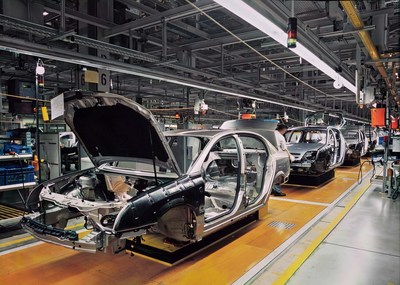Botswana’s Delta Automotive Sparks Industrial Growth with Women at the Helm
Delta’s success is not merely about numbers or exports. It's about redefining what manufacturing looks like in Africa, and who gets to lead it.

- Country:
- Ivory Coast
Once a quiet town 70 kilometres south of Botswana’s capital, Gaborone, Lobatse is now emerging as a manufacturing beacon for Africa. In what was once an economy almost entirely reliant on diamond mining, a new industrial narrative is being forged—literally—on the factory floors of Delta Automotive Technologies.
At the heart of this transformation is the intricate world of automotive wiring harnesses—bundled networks of wires, connectors, and components that function as a car’s central nervous system. These crucial parts, which transmit electrical signals and power to every corner of a vehicle, are being assembled in Botswana with precision and pride.
Delta Automotive Technologies is currently producing 120 wiring harness sets per day for Volkswagen's Polo Vivo and Polo 270 models, with plans to scale up to 340 sets for Volkswagen and 111 for Nissan’s H60 models by 2027. This ambitious growth strategy is backed by a $80 million credit line from the African Development Bank (AfDB) to the Botswana Development Corporation (BDC), with Delta as one of its most promising beneficiaries.
From Diamonds to Diversification
Botswana has long been known for its diamond exports. However, the winds of change are blowing strong, and Delta Automotive is at the forefront. The AfDB’s funding has not only financed infrastructure but also opened up pathways to economic diversification, industrial resilience, and socio-economic inclusion.
“This funding hasn't just built infrastructure—it’s built opportunity,” notes Darryn Hattingh, Director of Manufacturing at Delta. “We've created a globally competitive operation that supports our local economy while fueling future innovation.”
Delta’s success is not merely about numbers or exports. It's about redefining what manufacturing looks like in Africa, and who gets to lead it.
Women Driving the Change
In an industry historically dominated by men, Delta Automotive is flipping the script. An impressive 75% of its 327-strong workforce is female, an anomaly in both the automotive and manufacturing sectors. These women are not only operating machinery and assembling high-precision components—they are managing operations, overseeing quality assurance, and leading teams.
One such trailblazer is Clara Kaekane, a product and process engineer. “Every component we make is a challenge to outdated assumptions about gender and engineering work,” she says. “I’m not just building car parts—I’m building a new perception of what’s possible for women in manufacturing across Africa.”
The commitment to gender inclusion is not just a social good; it’s a strategic asset. Women like Kaekane are helping Delta become more innovative, adaptable, and inclusive—key traits for success in a competitive global industry.
Global Supply Chains, Local Impact
Delta's integration into global supply chains reflects Africa’s growing role in precision manufacturing. Every wire harness produced in Lobatse links not only the inner mechanics of a vehicle but also local communities to the global economy. This reflects the African Development Bank’s “High 5” priorities—specifically, Industrialize Africa and Integrate Africa.
“What is happening here is the physical manifestation of our development vision,” affirms Moono Mupotola, Deputy Director General for Southern Africa at the AfDB. “Each harness connects Botswana’s workforce to global value chains, rural communities to industrial opportunity, and traditional economies to diversified futures.”
The Numbers Behind the Growth
Delta’s expansion is as human as it is industrial. With 95% of its staff being Botswana nationals, the company is deeply embedded in the local community. From 327 employees today, Delta aims to scale its workforce to 1,000 within four years. That’s 1,000 families empowered, 1,000 futures transformed, and 1,000 reasons why inclusive industrialisation matters.
“This is more than a factory,” says Benedicta Abosi from BDC. “It’s a development engine. The export earnings, technical skills, and quality employment we’re seeing are just the beginning. It’s a proof of concept for what development finance can achieve when it meets vision and execution.”
Blueprint for a Continental Future
Delta Automotive Technologies is becoming a case study for how to build industrial capacity in Africa. By tapping into international markets and empowering a domestic workforce, it demonstrates how African countries can reduce dependency on raw material exports and move up the value chain.
Its story is one of policy synergy, strategic financing, and human potential. It shows that with the right mix of capital, partnerships, and social vision, African nations can write new economic narratives—narratives that go beyond natural resources and focus on manufacturing, technology, and equity.
As the hum of machines continues in Lobatse, every harness assembled is not just a mechanical part—it’s a symbol of transformation, connection, and the power of inclusive development.










